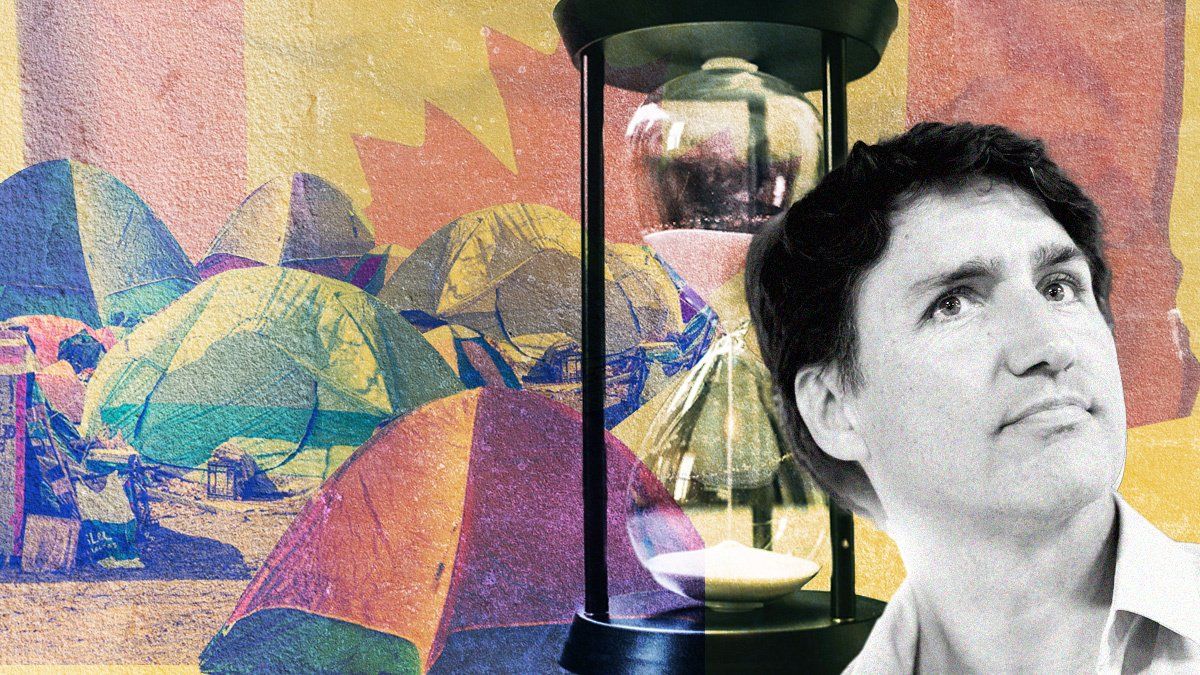Justin Trudeau does not intend to follow his friend Joe Biden into retirement to make way for a more appealing leader before the next election, he told reporters this week, because he is “focused on making sure we’re delivering through that election the kinds of things that Canadians need.”
Most Canadians think he should resign, but instead, Trudeau has rolled up his sleeves and announced policies to tackle the housing crisis — increasing supply and reducing demand — which should eventually help close the gap.
There’s just one small problem. It will take years before things get better, and he is scheduled to go to the polls in 13 months. That may seem unfair since he won’t likely be in office when the issue is resolved, but on the other hand, he is largely responsible for creating the problem.
The trouble started after the pandemic, when the economy was teetering on the brink of a slowdown because of a labor shortage. Employers, business associations, and provincial governments were united in calling for the government to do something before businesses were forced to shut down for want of workers.
Trudeau tried to give them what they wanted: people. His government opened the gates to immigrants on a vast scale, letting in permanent workers, temporary foreign workers, and students, coming up with novel pathways for visa approvals. In they flooded.
Tent cities everywhere
From 2021 to halfway through this year, Canada’s population grew by almost three million people, and fewer than 900,000 homes were built.
In the third quarter of 2022, Canada’s population grew by 362,453, the fastest rate of growth since 1957, during the postwar baby boom. But Canadians are no longer able, as they were in the 1950s, to quickly build thousands of tract houses. Permitting is complex, expensive, and slow. To make things worse, just as housing got scarce, interest rates spiked, which stalled approved projects.
The result is plain in cities across Canada. Tent encampments have sprung up, which, research shows, is a sign that many more people are living in tough circumstances — sleeping in vans, couch surfing, or jammed into overcrowded apartments.
In Halifax, where Trudeau spoke to reporters, politicians are arguing about which parks should be open to tents. The vacancy rate (percentage of unoccupied rental units) has been at 1% for three years. Rent went up 9.5% in 2023. The price of a house doubled in a decade.
Tough on the young
Young people have borne the brunt. When they should be figuring out their lives, they are struggling to make rent. They are not in a good mood. Thirty-six percent of Canadian 18-35-year-olds say they are having a hard time paying their bills on time, according to polling from Abacus Data. Forty-five percent say they have experienced significant to extreme stress because of the housing crisis.
As the crisis got worse, Conservative Leader Pierre Poilievre gained ground, proposing policies that the Trudeau government ended up implementing. As a result, only 12% of young people think the Liberals have the best solution for the problem, compared with 30% (largely male) for the Conservatives and 24% (largely female) for the left-leaning NDP.
Those voters have tuned out Trudeau, says pollster David Coletto. “He can’t make the arguments that need to be made if you want to counter Poilievre effectively. No one’s going to listen."
Trudeau has put billions into housing funds, pressed municipalities to loosen zoning rules and, this week, announced two big changes. In Halifax, his government announced it would make it harder for Canadian companies to hire temporary foreign workers and that it would make available federal land for affordable housing.
A Canadian Kamala?
The first step ought to reduce the demand for housing, or the rate of growth at any rate, and the second will increase the supply. But neither the supply nor the demand line will bend in an electorally useful way.
“I don’t see the situation being substantially better in the next 12 months,” says Mike Moffatt, an economist who gave a presentation to Trudeau’s cabinet in Halifax.
The Liberals are going to lose unless they convince Trudeau to follow Biden into retirement and find a new leader who can get young voters onside, says Coletto, of Abacus Data.
In the United States, “all of the market research was showing us that there were large segments of young people — women — who despised both options they were offered,” he says. “And the minute you changed the menu and put what people wanted on there, they embraced it. Canada’s no different.”
Canadian Liberals must hope that a Canadian Kamala Harris rides to their rescue, or Poilievre will reap the rewards of the policy that Trudeau is implementing now.